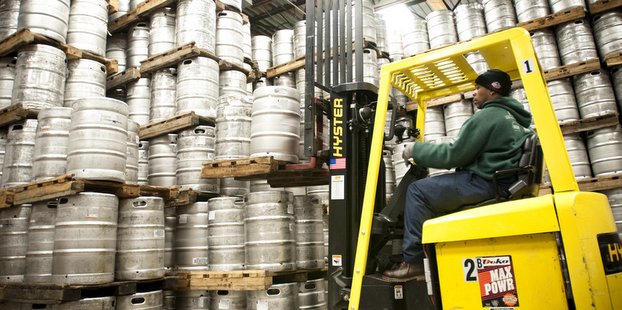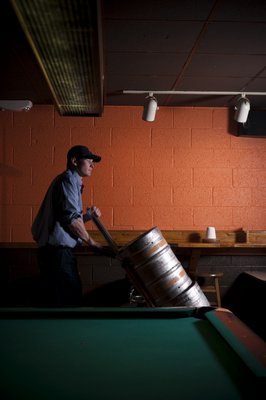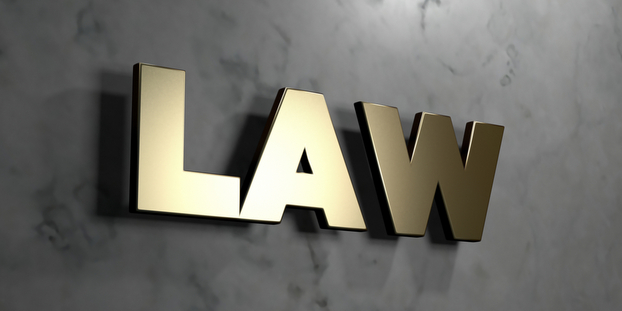
Massachusetts brewers descended on Beacon Hill last week to continue their almost decade-long fight to liberate their beer from the draconian franchise law holding them hostage. Pursuant to Massachusetts General Law Chapter 138 Section 25E, any brewery (or distillery or vineyard for that matter) that sells its product to a distributor for a six-month period is automatically entered into a business relationship (whether an explicit agreement exists or not) that requires a brewery to sell that particular product exclusively to that distributor, potentially for life. The inability to extricate their products from distributor relationships, particularly when the business relationship has deteriorated, has irked brewers for years. Meanwhile, distributors suggest a change in the law would risk jobs and shutter businesses. Several bills are pending at the State House to do just that, but to fully understand the current situation it helps to have some background.
Background
The sale of alcoholic beverages in the United States is based on the so-called Three Tier System consisting of manufacturers, distributors (also referred interchangeably as “wholesalers”) and retailers. Manufacturers produce the product, distributors purchase the product from manufacturers and then sell and deliver to retailers, while retailers sell the product directly to consumers at restaurants or liquor stores. The system was implemented after the repeal of prohibition over concerns of regulation, taxation and eradicating remnants of the black market that was a by-product of the ban on alcohol.
Today, the Three Tier System’s lines are blurred. Manufacturers can self-distribute to retailers, as is the case with any Massachusetts’ manufacturer holding a Farmer-Series License. Yet, distributors are an important cog in the alcoholic beverage industry’s wheel. Not only do they move product from warehouse to patron, but they are often responsible for developing the brand. In such a competitive brewing market, it helps to have a sophisticated sales force investing time and resources to promote a brewery’s product. And some go to great lengths to gain a competitive edge for their client, as was evidenced by the recent pay-to-play scandal that rocked the local industry a few months ago.
Current law
The Massachusetts Franchise law was established in the early 1970s to protect distributors at a time when the industry was flipped — few large-scale breweries dominated the market while a crowded field of mom-and-pop distributors fought for their business. If a brewery terminated the right to distribute their product, the distributor would likely fail after losing one of their only clients. Subsequently, the franchise law was established to even the playing field. But this government-imposed protectionist solution created an anti-competitive market. The law has enabled distributors to collect brewery brands to bolster their portfolios, but essentially eliminates the threat of competition necessary to keep them accountable. This is particularly evident now that the industry is dominated by a few large distributors and dozens of small craft breweries.
Under the current law, any manufacturer that sells its product to a distributor for a period of six months is required to continue selling that particular product indefinitely unless they can demonstrate “good cause” to terminate the relationship. Evidence of good cause has proven to be a high-benchmark but includes damaging the reputation of the owner or product, preferential treatment of a competitor, failure to use best-efforts while promoting the brand, engaging in improper trade practices, or failing to comply with the terms of sale. So rare is a finding of good cause that Boston Beer Co. founder Jim Koch exclaimed at the recent legislative public hearing “It’s easier to get out of a bad marriage than a bad wholesaler relationship.”
Not all states have franchise laws — many others allow manufacturers and distributors to operate freely without statutory agreements involuntarily binding them into potentially life-long business relationships. It is important to note that Massachusetts manufacturers and distributors are also free to negotiate their own contractual terms separate from the existing law. However, new and small breweries requiring the service of a distributor are at a sizeable disadvantage when negotiating terms of a separate distribution agreement due to the leverage provided by the law, among other factors. Balancing the playing field is a key element supporting the need for reform.
Industry impact

Newton’s Third Law of Motion tells us that for every action, there is an equal and opposite reaction. And in this case, it appears the potential burdensome relationship between a brewery and its distributor has caused a shift in the Massachusetts brewing industry. For one, more and more breweries are self-distributing their product. One in particular, Night Shift, has gone so far as starting their own distribution company that allows clients to terminate at will without showing good cause. Another is that some breweries have gone so far as to discontinue a particular beer just to terminate the distributor relationship (the law requires a brewery to continue selling the particular product to the distributor, but not beers otherwise not sold to the distributor).
The most interesting effect is that many new breweries are electing not to distribute their beer at all. Instead, they open a small-scale brewing operation and couple that with a taproom where they sell their product directly to consumers. The precarious distributor relationship could partially be responsible for the initial explosion of taprooms, creating small-scale brewing operations that are becoming the newest and most popular neighborhood bars throughout Massachusetts.
Proposed changes to the law
With more than 100 breweries in Massachusetts and an increasingly organized association in the Massachusetts Brewers Guild, brewers have more clout than ever. Representative Alice Piesch filed the brewers’ ideal changes to the franchise law in House Bill 183, An act relative to craft brewers, which would authorize brewers to terminate their distributor relationship without evidencing good cause when their product makes up 20% or less of the distributor’s total sales, so long as 30 days notice is provided. In such a case, the succeeding distributor is required to compensate “fair market value” to the preceding distributor, which is undefined and a likely source of controversy if the bill was to pass. However, the relationship would be terminated while fair market value is determined. This bill would still protect distributors while helping facilitate the growth of small craft brewers. Distributors would be shielded from losing a large portion of their client base while allowing young breweries to switch if they feel performance was slipping.
Distributors, on the other hand, have successfully blocked versions of House Bill 183 in previous legislative sessions, but a sense of changing dynamics in the fight has softened their position and apparently induced them to file House Bill 2823, An act to promote economic development and market access for emerging businesses. This bill would authorize a brewery to terminate their distributor relationship if the brewery is privately owned, managed by said owners, and produces less than 30,000 barrels annually, but requires 90 days notice. The 30,000 barrel cap would apply to all but a very few breweries in Massachusetts, yet many more are growing into that threshold. House Bill 2823 would also require fair market value compensation, but unlike House Bill 183 the distribution relationship would continue until compensation is agreed upon and paid. Needless to say, brewers have opposed this more restrictive proposal.
Moving forward
Any of the bills would first need a favorable report from the Joint Committee on Consumer Protection and Professional Licensure, where they currently reside. The Committee could (1) favorably report one, some, or all versions of the bill; (2) draft a compromise bill encompassing elements from each (considering both sides are still far apart); (3) or bottle up the bills and do nothing.
Once receiving a favorable report, the bill would likely be sent to House Ways and Means, where newly appointed Chair Jeffery Sanchez would have an opportunity to review and amend at his discretion. If House Ways and Means subsequently reports the bill favorably, it would require a vote from the House of Representatives. Once approved, it would be sent to the Senate and take a similar path as in the House. If the Senate finally votes in favor, the bill would go to Governor Baker’s desk for signature. Another course of action, though unlikely, is for the bill’s language to be filed as an amendment to another larger bill during the legislative session, such as an omnibus economic or supplemental budget bill.
In Conclusion
This year, the brewers have shown a sophisticated and concerted effort to pass their version of bill. The refocused Mass Brewers Guild energized support within the industry and assembled their biggest turnout yet at the public hearing for the bill; Representative Tackey Chan, the newly appointed chairman of the Committee on Consumer Protection and Professional Licensure, recently took a tour of Barrel House Z in Weymouth with the Guild and prominent members of Massachusetts brewing industry; and professional lobbyist group Kearny, Donovan & McGee has joined to help advocate in favor of the brewers. The distributors, on the other hand, have utilized professional services for years, including President of the Beer Distributors of Massachusetts and former ABCC General Counsel, Bill Kelley. Finally, let’s not forget the looming recommendations of the Massachusetts Alcohol Task Force, charged by Treasurer Goldberg with reviewing and updating the antiquated alcoholic beverage laws, that could further complicate matters.
There is a great deal at stake for the Massachusetts’ craft beer industry in this fight. Both distributors and brewers have legitimate positions and large financial interests in the outcome. While there is a sense of impending changes, the Massachusetts Legislature can often be unpredictable. Check back here for updates or find out more about our services for Massachusetts liquor licenses.
Rob McGovern is the owner of The Law Office of Robert J. McGovern, a Massachusetts law firm providing legal counsel and guidance to small businesses and entrepreneurs, with a specialization in the alcoholic beverage and hospitality industry. Rob is the author of A Legal Guide to Opening a Brewery, an educational guide for aspiring brewers on the many legal, business, financial and operational factors to consider when opening a brewery.





Leave a Reply
You must be logged in to post a comment.